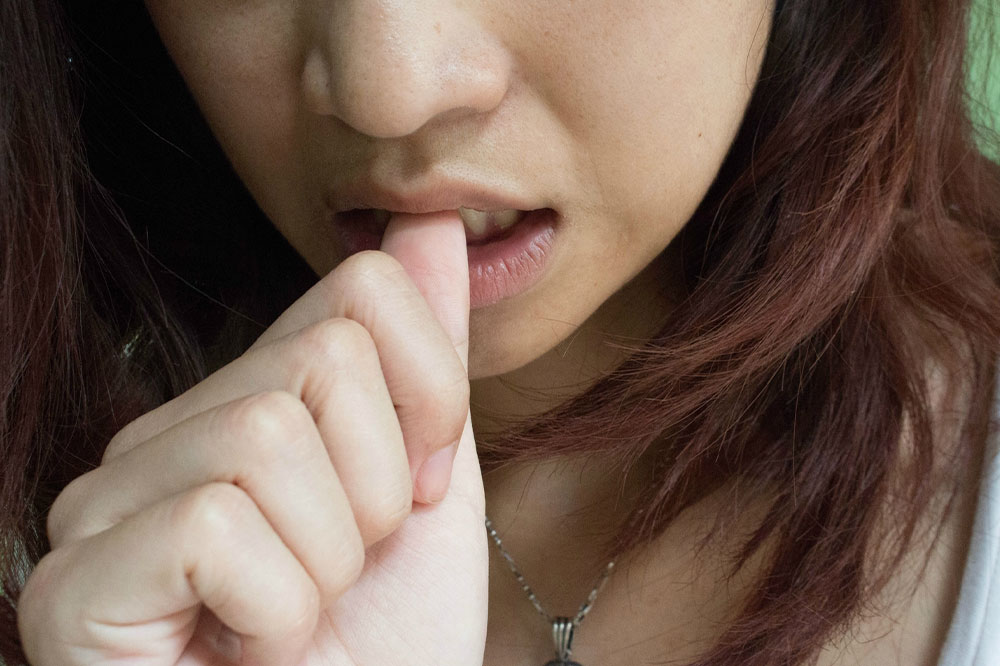10 unhealthy habits that damage one’s teeth

Maintaining good dental health goes beyond regular brushing and flossing. One must also take care to avoid certain unhealthy habits that damage teeth. However, most of these habits do not cause any issues immediately; the effects are seen only after a few years. But it takes time to undo the side effects. So, the sooner one starts to get rid of these bad habits, the better it is for the teeth and gums.
Using a stiff-bristled toothbrush
It is a misconception that the harder the bristles are of a toothbrush, the more effective it will be in removing plaque and keeping the teeth clean. On the contrary, hard bristles cause more damage to the teeth by scrubbing at the protective enamel layer. It can also cause tooth sensitivity and gum recession. So, always pick a toothbrush with soft or medium bristles for gentle and thorough cleaning.
Nail biting
Biting on one’s nails can lead to chipping, cracking, and wearing down of the teeth. Sometimes, constant nail biting can also cause dysfunction of the jaws. This happens because the jaws are pushed to an unnatural angle when biting on the nails. As this habit persists over time, it leads to temporomandibular disorder, or TMD, an oral health disorder that causes pain in the jaws. Also, biting the nails can transfer harmful bacteria to the mouth, causing tooth cavities, bad breath, and other oral health problems.
Grinding or clenching teeth
This is an unconscious habit that causes damage to the teeth. Many people tend to clench or grind their teeth during stressful or anxious periods. Over the long term, the intense pressure building up on the jaws can lead to severe pain. In addition, the enamel of the teeth may wear off due to constant grinding, making the teeth and gums more susceptible to decay. Although it is hard to get rid of this unhealthy habit, consulting a dental professional can help.
Chewing on ice
Whether having a cold coffee, milkshake, or any iced beverage, it may feel satisfying to chew on the crunchy ice left behind at the bottom of the drink. However, this habit can cause serious damage to the teeth. Since ice has a tough surface, chewing on it puts pressure on the teeth’ surface. Biting on the ice or chewing it can cause cracks, chips, or fractures on teeth. This will make the teeth vulnerable to cavities and decay and leave one with a dental emergency that requires urgent treatment.
Chewing and biting random objects
It is a common habit to chew on the tip of eyeglasses, pen, or pencil. It is something that people do unconsciously while focusing on a difficult task or while thinking hard about something. While this may seem like an occasional benign habit, it can cause damage to the teeth in the long run. This is because these objects have hard surfaces that wear off the protective layers of the teeth. Moreover, the constant chewing and biting of random objects can cause the teeth to shift or crack and the germs on these objects can increase the risk of infection and decay.
Snacking frequently
Whenever one eats, food particles are left behind between the gaps in the teeth, on the surface of the teeth, and the gums. Over time, these particles lead to the formation of plaque on which bacteria grows. These bacteria cause cavities and decay in the teeth and gums. Moreover, acid is produced in the mouth after eating, which can erode the teeth’ enamel. Therefore, frequent snacking can increase the chances of damage to the teeth and gums. It is recommended to eat more balanced and whole meals compared to snacks. Also, drink plenty of water to rinse the excess food particles from the mouth.
Eating excess sugary and acidic foods
Foods and drinks that very acidic and sugar-rich increase the growth of bacteria in the mouth. This can cause cavities, decay, and pain in the teeth. Also, the high acidic content causes damage to the enamel, leaving the teeth vulnerable to chipping and cracking. So it is best to avoid or just have in moderation the following foods and drinks for better dental health:
Carbonated drinks
Soda
Sticky candies and sweets
Baked sweets
Fruit pops
Packaged fruit juice
Sugary cereal
Tomato juice
Sauerkraut
Vinegar
Using teeth as tools
When one uses their teeth to open bottles, tear open a packet of chips, or cut off a tag, it increases the risk of damage. There can be accidental cracking of the teeth. Moreover, there is the risk of causing injury to the jaws with the sudden jerking movement that results from these activities. So instead of using the teeth for something other than chewing food, use actual tools handy such as scissors and bottle openers.
Drinking lot of caffeinated beverages
A little bit of caffeine doesn’t do much harm when one takes care of their dental health. However, despite all the care, drinking many caffeine-based drinks will stain the teeth. Multiple cups of coffee, tea, or energy drinks throughout the day will turn the teeth yellow and dull, slowly degrading their natural shine. If sugar is added to these beverages, it increases the risk of staining and cavities. Therefore, make sure to limit the intake of caffeinated drinks daily.
Playing sports without a mouthguard
Certain sports, such as baseball, basketball, football, or softball, have the risk of causing dental harm. It can be either a strongly thrown ball or a contact injury that hits the jaw or the teeth. This can lead to jaw dislocation or broken teeth. To safeguard against these risks, it is a good habit to wear a mouthguard while playing any sport that has the possibility of contact with a sports equipment or another person.







